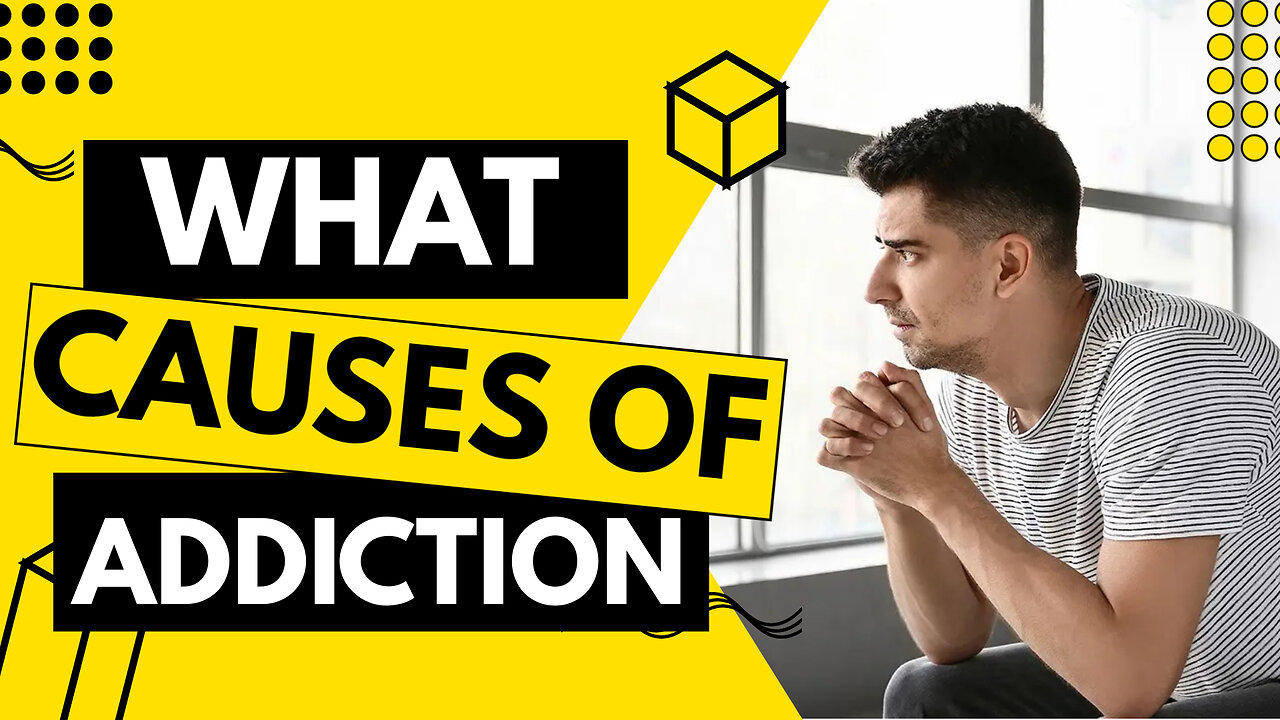Premium Only Content

What Causes Addiction - The Science of Addiction
In the realm of neuroscience, psychology, and public health, addiction remains a formidable challenge. From substance abuse to compulsive behaviors, addiction can exert a powerful grip on individuals, often leading to devastating consequences for both the affected individual and society at large. Understanding the intricate mechanisms that underpin addiction is crucial for developing effective prevention and treatment strategies. In this comprehensive exploration, we delve deep into the science of addiction, unraveling its causes, manifestations, and potential avenues for intervention.
Before delving into the science behind addiction, it’s essential to establish a clear definition of what addiction entails. Addiction is a complex condition characterized by compulsive engagement in rewarding stimuli despite adverse consequences. This definition encompasses a wide range of addictive behaviors, like play games, internet addiction, and compulsive eating.
At its core, addiction involves alterations in brain function and neurochemistry, fundamentally reshaping the way individuals process reward, motivation, and decision-making. Key neurotransmitter systems, including dopamine, glutamate, and serotonin, play pivotal roles in the development and maintenance of addictive behaviors. Dopamine, in particular, is implicated in the brain's reward circuitry, reinforcing pleasurable experiences and driving the cycle of addiction.
While environmental factors undoubtedly influence addiction, genetic predispositions also contribute significantly to an individual's susceptibility to addictive behaviors. Family and twin studies have provided compelling evidence of genetic heritability in addiction risk, with certain genetic variations increasing the likelihood of developing substance use disorders or other addictive behaviors.
Psychological processes, including stress, trauma, mental health disorders, and personality traits, also contribute to the development of addiction. Many individuals turn to addictive substances or behaviors as a means of coping with negative emotions or seeking temporary relief from psychological distress. Moreover, certain personality traits, such as impulsivity and sensation-seeking, are associated with an increased risk of addiction.
-
![[Ep 737] Media & Left Attack Prayer and God | Media Loses Control of Narrative | CDL Fraud](https://1a-1791.com/video/fww1/ca/s8/1/m/N/f/d/mNfdz.0kob-small-Ep-736-Make-Gender-Dysphori.jpg) UPCOMING
UPCOMING
The Nunn Report - w/ Dan Nunn
54 minutes ago[Ep 737] Media & Left Attack Prayer and God | Media Loses Control of Narrative | CDL Fraud
151 -
 2:53:12
2:53:12
Right Side Broadcasting Network
6 hours agoLIVE REPLAY: White House Press Secretary Karoline Leavitt Holds a Press Briefing - 8/28/25
97.9K37 -
 1:38:09
1:38:09
Simply Bitcoin
4 hours ago $1.75 earnedIs This Your LAST Chance to Buy Bitcoin Before the GENERATIONAL Bull Run Begins? | EP 1320
16.3K1 -
 LIVE
LIVE
StoneMountain64
2 hours ago#1 WARZONE TACTICIAN + New Battlefield Trailer
187 watching -
 20:03
20:03
Adam Does Movies
3 hours ago $0.43 earnedAlien: Earth Episode 1 - Recrap
11.5K -
 15:38
15:38
IsaacButterfield
10 hours ago $0.42 earnedExploiting His Baby For Views (The Island Boys)
8.76K11 -
 32:09
32:09
The Boomer Effect
7 hours agoBuy American and Build America
8.52K -
 1:59:46
1:59:46
The Charlie Kirk Show
4 hours agoShould Taylor Swift Submit? + What's Wrong In Minneapolis? + MAHA vs. CDC | 8.28.2025
56.5K28 -
 50:23
50:23
The White House
3 hours agoPress Secretary Karoline Leavitt Briefs Members of the Media, Aug. 28, 2025
38.2K32 -
 1:01:34
1:01:34
Timcast
4 hours agoCatholics Targeted By TRANS Shooter, Left Blames CHRISTIANITY
169K119